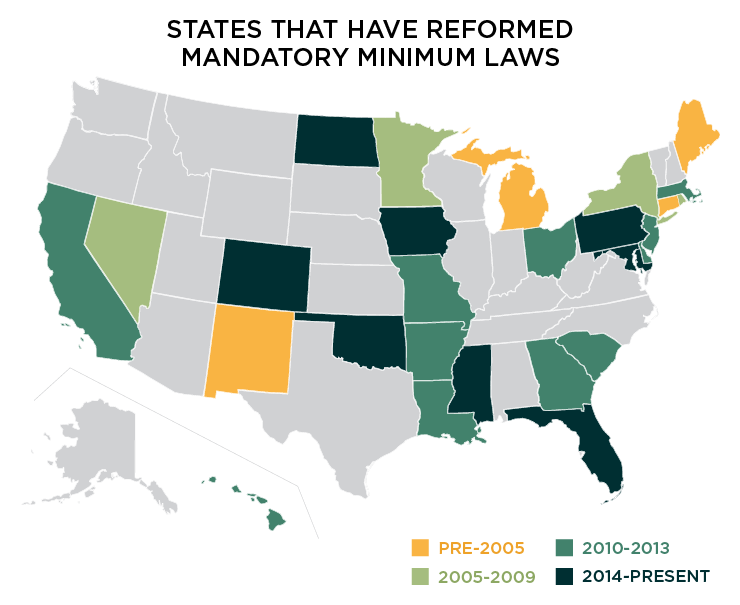
The above chart represents states that have implemented sentence reform statutes as they relate to mandatory minimum sentencing. Though Massachusetts has enacted sentencing laws that reduce some drug mandatory minimum sentences, last week the Massachusetts Supreme Judicial Court held that state law does not currently allow departures from mandatory minimum sentences.
Families Against Mandatory Minimums (FAMM) urged the Massachusetts legislature to pass common sense sentencing reform in response to the Court’s ruling last week, and filed an amicus brief in the case along with 40 other groups that oppose mandatory minimum sentencing laws.
FAMM’s State Policy Director, Greg Newburn, argued that while FAMM disagreed with the result, the Court actually helped make the case for reform. “FAMM is disappointed with the outcome of the Court’s decision, but we are pleased the Court took note that more than 20 states have adopted the kinds of sentencing reforms that have been proposed in Massachusetts. We encourage the Massachusetts legislature to follow their lead,” Newburn said.
Newburn also noted that Massachusetts’ failure to pass sentencing reform is puzzling. “Red, blue, and purple states all over the country have adopted sensible mandatory minimum reforms. The result is the same everywhere: lower crime and millions of dollars saved. There is simply no good reason to continue opposing common sense sentencing reform in Massachusetts,” Newburn said. He added, “I’m hopeful Massachusetts will join the rest of the country in moving away from these outdated laws.”
FAMM is the nation’s leading sentencing reform organization. Based in Washington, D.C., the group recently celebrated its 25th anniversary fighting for sentencing reform.

0 Comments